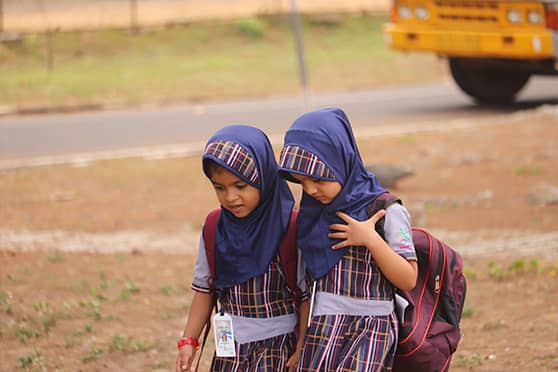Taliban leaders have fallen out over the education of girls after Haibtalluah Akhundzada, its supreme leader, and his top officials expressed opposing opinions on the issue.
Sirajuddin Haqqani, the powerful interior minister, said that power had been “monopolised” by the Taliban hierarchy and the situation could “no longer be tolerated”, adding: “Now that we are in power, it is our responsibility to heal the wounds of our people and bring them relief.”
His comments came amid a growing debate within the fundamentalist movement over the issue: women were sent home from university last year, and in March schools closed their doors to girls over 11.
Haqqani, who is regarded as a terrorist by the US, which has put a $10 million bounty on his head, is more open to girls returning to school, according to foreign diplomats.
He is reportedly supported by Mullah Yaqoob, the acting deputy defence minister and son of Mullah Omar, the founder of the Taliban. On Sunday, Haqqani told religious leaders in Khost province that the Taliban should not pursue policies that “drive a wedge” between it and the Afghan people.
On Thursday, Yaqoob said the government should listen to the “legitimate demands” of the population so that they could live “without physical, intellectual or religious invasion”. It is rare for Taliban members to make even oblique criticism of the movement’s leader.
Akhundzada is a hardliner who rarely makes public appearances and has not been photographed in public for decades. He draws his authority from his perceived religiosity rather than combat experience.
He and a few close associates who have no formal role in the government are understood to be the driving force behind edicts on women’s education. “The fact that Haqqani expressed his criticism publicly marks a major escalation in the ongoing spat within the Taliban,” said Michael Kugelman, South Asia Institute director at The Wilson Centre think tank.
“There have been differences within the Taliban in the past, but they’re typically kept private and if need be the dissenters are quietly dealt with. With this growing spat now out in the open that will be tough to do, especially given that one of the main dissenters is a powerful Taliban figure.”
A Taliban diplomatic source said tensions escalated between the two camps last week after Akhundzada created the National Security Council to be headed by his close aide, Ibrahim Sadr. Sadr was the interior minister before Haqqani. Security issues had previously been handled between the defence and interior ministries, led by Haqqani and Yaqoob.
Tripp Copeland, a former US state department official land Taliban analyst, said “positive developments” on women’s rights should be seized upon, and called for the US to lift travel bans on senior Taliban clerics to support moderate voices within the group.
The Daily Telegraph, London










